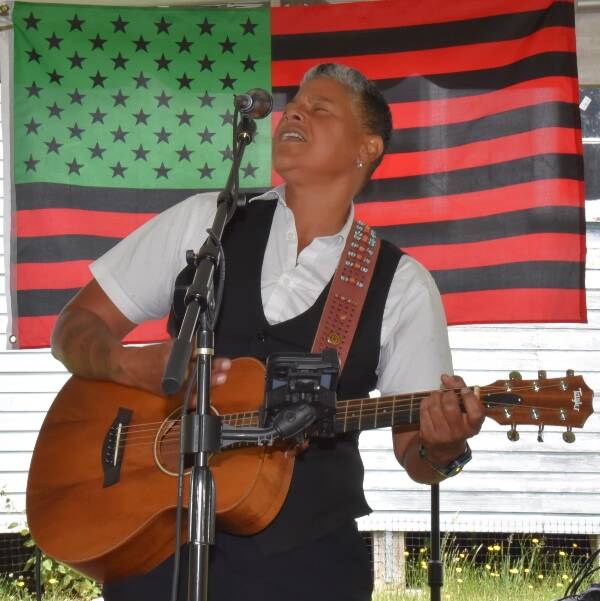The third annual event recognizing Juneteenth on Vashon took place on Sunday, June 18, at Mukai Farm & Garden — a verdant and peaceful spot where islanders gathered to celebrate the holiday that has long been observed as an important day for Black Americans.
Juneteenth marks the date of June 19, 1865, when enslaved citizens of Texas were finally declared free from bondage, a full two and a half years after the signing of the Emancipation Proclamation.
African Americans observed Emancipation Day, as Juneteenth was first known, as early as 1866, in Galveston, Texas. As community gatherings grew across Texas, celebrations included parades, prayer, singing, and readings of the proclamation.
Since 1979, Juneteenth has been a state holiday in Texas, but the push to make the holiday federally observed only succeeded in the wake of the nationwide protests of police violence in 2020.
In the summer of 2021, Congress quickly pushed through legislation with bipartisan support to make Juneteenth a federal holiday.
Vashon’s celebration of Juneteenth, organized in partnership between Vashon’s Juneteenth Committee and Mukai Farm & Garden, is now only three years old.
The family-friendly day of recognition and celebration of the contributions of Black Americans and culture included a visit by Vashon Reads Bookmobile, featuring a special selection of books about Juneteenth and Black History, and a powerhouse performance by Tacoma musician Kim Archer.
The celebration was dedicated to Harry Belafonte, the renowned Black artist, singer, civil and human rights activist, and supporter of revolutionary causes. Belafonte died, at the age of 96, on April 25.
Moving speeches by organizers Yasmin Ravard-Andresen, of the Juneteenth Committee, and Stacey Carkonen, interim director of Mukai Farm & Garden, bound together the many different heritages of those who had gathered for the celebration, as well as a responsibility to work for restorative justice to all individuals and communities who have suffered historical injustices.
Local chef Emily Vogt was also on hand to provide delicious picnic fare: beans and rice, turkey roll-ups, greens and potato salad.
Attendees new to the celebration were encouraged to learn more about reparations — providing financial or material compensation to individuals or communities who have suffered historical oppression and endured its generational trauma.
Signage at the Juneteenth Celebration detailed the benefits of reparations to all parties: “By acknowledging the past and providing compensation, reparations can help foster healing, reconciliation and social cohesion.”



